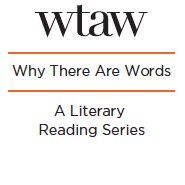Why There Are Words Literary Reading Series presents:
An Interview with Kate Moses
By: Nancy Au

Kate Moses is the author of Cakewalk, A Memoir, nominated for a Northern California Book Award, and the internationally acclaimed, award-winning novel Wintering: A Novel of Sylvia Plath, published in fifteen languages. As a founding editor and staff writer for Salon, Kate Moses co-edited Salon’s groundbreaking daily feature Mothers Who Think and two bestselling anthologies of essays on motherhood inspired by the site, Mothers Who Think and Because I Said So. A native of San Francisco, she teaches in the creative writing programs at San Francisco State and the University of San Francisco.
1.) In your novel, Wintering: A Novel of Sylvia Plath, you explore the last few month’s of Sylvia Plath’s life. Your work also explores the idea of a fraught identity–Plath felt she was many things (writer, mother, wife) and nothing (as revealed in the quote above). Did your experience as editor of the anthology and Salon.com’s, Mothers Who Think, (an evocative and diverse collection of essays about motherhood) inform your writing of Wintering: A Novel of Sylvia Plath?
KM: I never could have written Wintering if not for my experience as a mother who is also an artist. The experience of editing Mothers Who Think, both the daily website and the anthology, was just as essential to my understanding of how all-consuming and individual is the experience of motherhood. I first read Sylvia Plath seriously when I was a first-time mother of a newborn, and clutching my baby son to my chest I kept asking myself, How could she have done it? How could Plath have left her children, when the evidence of her profound love and respect for them is in her poems? How could she have given up on herself and on them?
I wrote Wintering while a mother of two small children, like Plath, and while editing Mothers Who Think. That process taught me that the creation of art and the raising of children calls on the same internal resources — your heart and your full attention — and also taught me the paradox that motherhood, raising children, is such a common experience but at the same time it can be so completely isolating. You so often feel like you are on your own, making it up as you go along and hoping for the best, never feeling like you’re giving enough or good enough. I realized for the first time how hard Plath struggled to give herself fully to both her artistry and her children, while at the same time battling personal demons and mental illness she didn’t even know she had. In the end I felt such compassion for Plath as a woman, a mother, an artist — I could see how she had finally been swamped by her illness, no matter how hard she tried to fulfill all of the roles she’d set for herself.
2.) Your work has a lyricism, rhythm, and eloquence often found in poetry. Was writing or reading poetry a part of the process when you wrote this novel?
KM: I think of poetry as my “religion,” what I turn to for internal sustenance. I don’t write poetry myself but I think — I hope — it seeps into my writing. Plath’s poems were the inspiration for Wintering and I read them with the same necessity and constancy as breathing while I was writing the novel. But I also read the poetry that mattered to Plath, to try to get deeper inside her head: Shakespeare, Yeats, Dickinson in particular.
3.) Along these same lines, could you describe a typical day of writing? What does your process “look” like?
KM: I spend more time looking like I’m doing something else other than writing: walking the dog, cleaning my house, baking. But while I’m doing those things I’m really doing the heavy lifting of my writing. Mostly I don’t write on a schedule or have a typical writing day, I wait for the words to shape themselves internally before I can sit down. It never works for me to sit at an empty computer screen or an empty page. But once the words are in my head and the urgency has arrived I absolutely have to drop everything else and write: phone is off, internet is off, dinner and beds don’t get made. When my daughter was small she coined a phrase for what it’s like when I’m writing: “Mommy’s behind the door.”
4.) What authors or poets or memoirists have most influenced you?
KM: I could go on and on with this, but I’ll try to keep it to my inner sanctum: Janet Frame, Lawrence Durrell, Michael Ondaatje, Jayne Anne Phillips, Eudora Welty, Virginia Woolf, Leo Tolstoy and William Faulkner in fiction; Sappho, Jack Gilbert, Plath of course, Anne Carson, C. P. Cavafy, Robert Fitzgerald’s translation of Homer, and Emily Dickinson in poetry; and particular memoirs — Ondaatje’s Running in the Family, Mary McCarthy’s Memories of a Catholic Girlhood, Janet Frame’s three-volume autobiography, James Salter’s Burning the Days, Hemingway’s A Moveable Feast, the autobiographical writings of Welty and Woolf, and Mary Karr’s three memoirs.
5.) Your memoir, Cakewalk, “tells the story of a girl whose insatiable appetite for sugar and stories was the key ingredient to surviving her unhappy family.” So, the question must be asked: Do you have any cavities?
KM: Let’s just say I would be horrified if anyone wanted to look inside my mouth, and I spend a lot on toothpaste.





